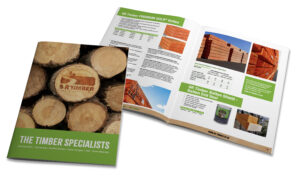The UK construction sector has continued contract this this, most notably commercial construction being the worst performing area—and as the Construction Products Association and others have reported continuing Brexit uncertainty is leading to lower client demand.
While at the time of writing, the ‘exit deal’ is
still in question, what is almost certain is the impact Brexit will have on roofing contractors and in turn on the provision of insurance to this market. This stems largely from the fact that ‘Made in the UK’ is not a term that is strongly associated with the UK’s construction sector.
The issue of skills
First we have the issue of skills. As our skilled contractor workforce has aged with 500,000 expected to retire in the next decade, according to the Office of National Statistics (ONS) Labour Force Survey 2016, the younger generation joining the sector are struggling to fill the gap.
This has created a real dearth in skills which has been filled to an extent by migrant workers. The CITB’s research shows
workers and ONS data shows these
workers are on average much younger than UK nationals working in the sector. Just 18 per cent are aged 45 or above, compared with almost half of UK nationals.
This valuable human resource is at risk of dissipating following Brexit.
Recognising the challenge, the government last year announced a
£22m investment in 20 onsite skills training centres, with 158,000 new construction jobs to be created in the UK over the next five years.
Then in February 2019, the CITB published
Building After Brexit: An Action Plan for Industry. This plan identifies the need for construction to grow investment in the domestic workforce and drive up productivity, while working with government to agree how to maintain access to migrant workers to give it the breathing space to adapt.
However, for the foreseeable future, the sector faces a scarcity of skills which may push labour prices higher and increase reliance on sub-contractors.
As we have discussed in Roofing Times before, increased reliance on sub-contractors increases main contractors’ responsibilities around site risk management and ensuring insurance arrangements are adequate to cover all those employed. This needs to be considered for the entire workforce, not just those who are directly employed by the main contractor. This task is significant and cannot be ignored.
Considering the 27 per cent increase in
construction fatalities in 2017 – 2018, maintaining health and safety standards is becoming ever more important.
Material costs
The second big factor is the possibility of rising materials costs. Almost all construction materials are imported and may be subject to tariffs following Brexit. As companies become more cautious in their ordering, we may see reductions in supply which may drive up costs further.
Contractors may find they need to resort to using lower standard materials with potentially negative implications for worker safety during the construction phase and the longer term safety and integrity of the building.
Supporting professionalism
Through this period of uncertainty for the UK as a whole, we must do what we can to support professionalism in the construction sector. This means insisting on standards of competence prior to agreeing insurance cover and promoting greater awareness of the risks of health and safety complacency.
Let’s not forget, there has been an overall long term downward trend for the rate and number of fatal injuries in construction since the millennium. Brexit should not result in a backward step for the sector.
About ECIC
ECIC is a trading name of Markel International Insurance Company Limited, whose ultimate holding company is Markel Corporation. EC Insurance Company Ltd (ECIC) is authorised by the Prudential Regulation Authority and regulated by the Financial Conduct Authority and Prudential Regulation Authority. FRN: 202123.
www.ecic.co.uk 




